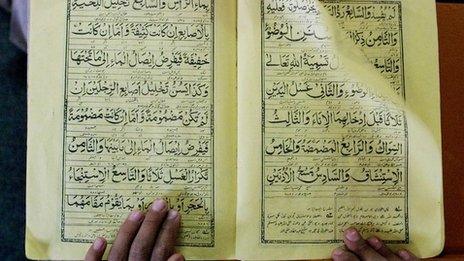Pakistan Christian community living in fear after mob killings
- Published
Shahzeb Jillani visits the Punjab village where a Christian couple were killed for allegedly desecrating the Koran
The fertile landscape in Chak 59 of Kasur district in the Punjab province is dotted with hundreds of brick kilns.
The factories, owned by powerful landlords, are notorious for thriving on "bonded labour". Hundreds of thousands of people have remained locked in a cycle of debt and poverty for decades.
Rights groups call it a form of modern-day slavery.
Until last week, Sajjad Mesih and his wife Shama, a Christian couple in their 30s, worked at one such brick kiln.
For years, they got up at dawn, laboured in harsh conditions through the day and finished up at dusk. That was their routine - every day, seven days a week. It was a life of debt and poverty that they hated.
On Tuesday, they were lynched and burnt to death there by a mob on allegations of blasphemy.
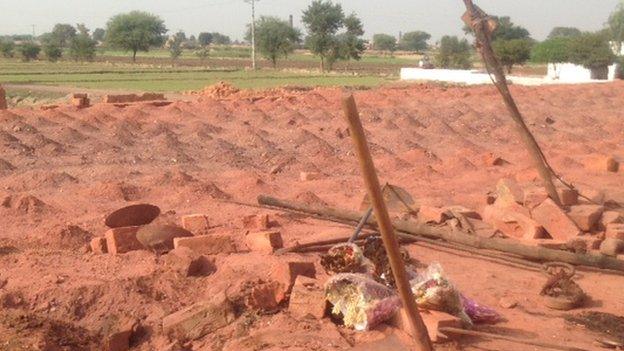
Flowers are left at the site of the couple's lynching
Blasphemy is an explosive issue in Pakistan. Reporting of violence in the name of blasphemy is often self-censored, twisted and confused by misreporting.
Piecing together the sequence of events and what led to vicious crimes on the pretext of blasphemy is not always straightforward.
But having visited the remote rural area and after speaking to up to a dozen or so people - including police, family, neighbours and eyewitnesses - here is an account of what the BBC has been able to put together.
Running for their lives
It all appears to have started about a week ago when the couple first heard about someone claiming to have discovered burnt pages of the Koran near their mud brick house.
Some extremist villagers were said to be furious and planning to take some kind of an action against the family.
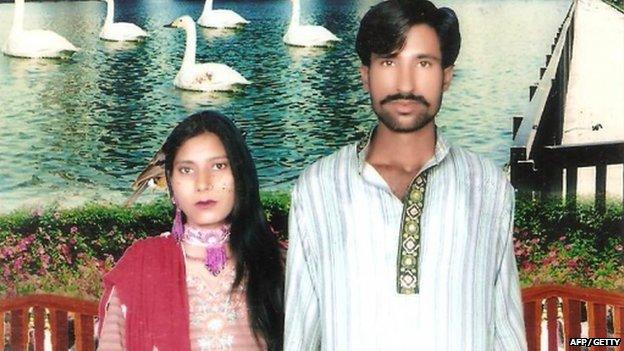
Shama (L) was pregnant with her fifth child when the couple were attacked and killed
Shama's sister Yasmeen knew more about the whispering campaign. Having converted to Islam along with her husband and children four years ago, she had good links inside the Muslim community.
It was through Yasmeen that the couple was sent an ultimatum by angry villagers, says Shahbaz Masih, a close relative of the couple.
They were told to convert to Islam to repent against their alleged sin or face the consequences for committing blasphemy.
Shama and her husband Sajjad knew then that their lives were in serious danger.
They had no intention of converting under duress. The only thing to do was to run for their lives.
On Monday, the couple informed the factory bosses that they feared for their lives and desperately needed to leave.
"Not without settling the debt you owe us," the couple was told by furious owners.
They were then locked up in a room, in case they tried to escape without clearing their dues.
There are suggestions that the amount of loan money they owed was $600 (£380); others say it was about $1,500 (£948).
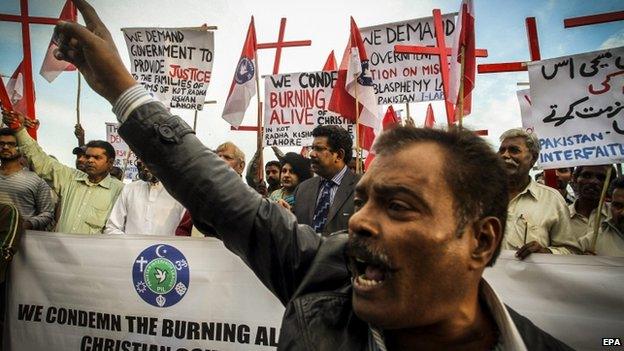
Members of Pakistan's Christian community have staged protests demanding justice for the couple's murder
The next morning, before dawn, a group of extremist villagers went around the area to call on members of the public "to come out for the defence of their great religion".
Clerics from local mosques used loud speakers to incite violence. Soon, hundreds of angry people converged on the brick kiln looking for the Christian couple.
"They had blood in their eyes," says a young Christian man who watched the lynching from a safe distance. "I was scared. No one could do anything to stop them."
A few policemen from the nearby check post soon arrived and tried to intervene. But they were outnumbered and beaten up by the mob and told to stay out of it.
The crowd then dragged the pair out of the room, where they were held by the factory owner. They were attacked with bricks and shovels and later laid on the brick oven to be burnt alive.
Three lives lost
At the time of the murder Shama was expecting her fifth child, says her family.
Three lives were lost in the gruesome murders.
The Christian community in the area is horrified by the public lynching.
In the nearby Christian-majority town of Clarkabad, there is anger at the state's failure to protect its vulnerable and at risk communities.
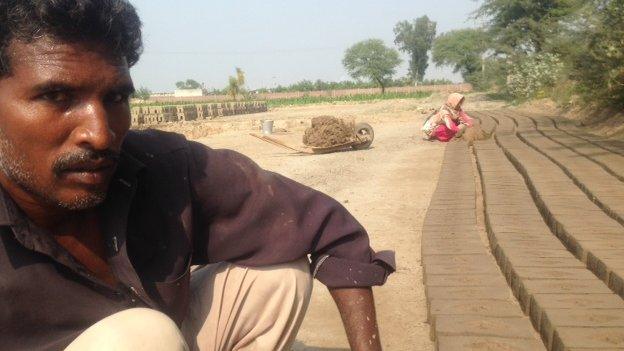
Suleman Masih also works at the brick kilns and is in fear of Tuesday's killings being repeated
"It could happen to anybody. Everyone here feels fearful," says Suleman Masih, a brick kiln worker.
For its part, the government has appeared to move swiftly to try to reassure the beleaguered community. Scores have been arrested under the country's tough anti-terror laws and the hunt is on for the remaining suspects.
But given the culture of impunity around violence against minorities, many here are not convinced.
"We want justice and until the culprits are held to account, Christians in Pakistan will not feel safe," says pastor Azmat Nadeem of the Church of Pakistan.
Pakistan is a long way from changing or repealing its notorious blasphemy laws.
At best, the only thing the country's vulnerable and at risk communities can really hope for now is that the authorities will treat this case seriously and possibly deter similar gruesome crimes from happening again.
- Published4 November 2014
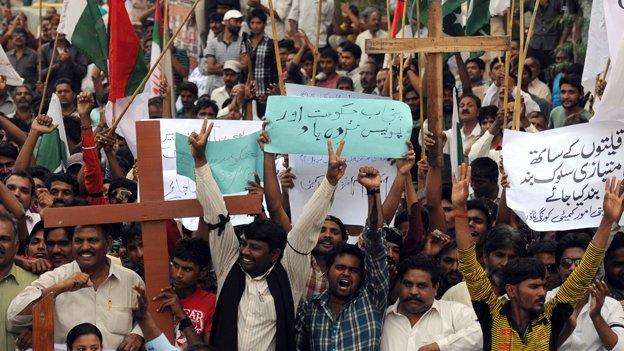
- Published7 November 2014
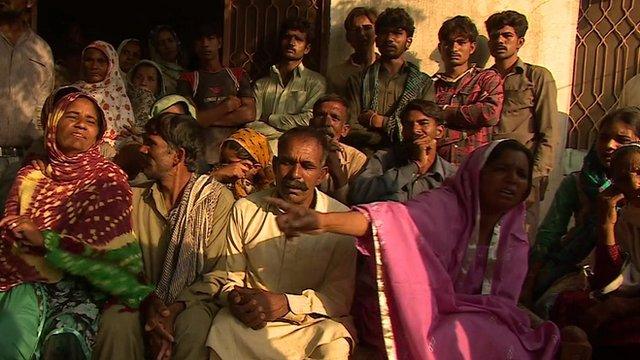
- Published6 November 2014
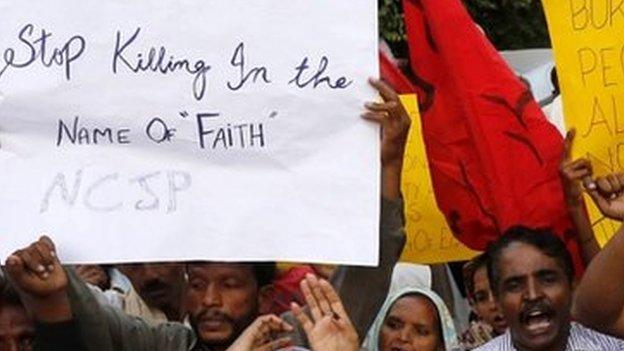
- Published5 November 2014

- Published3 October 2014
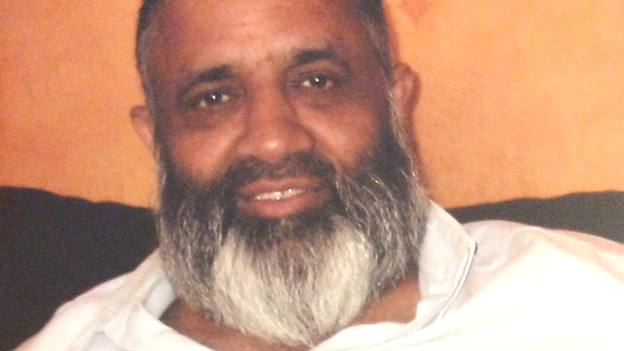
- Published24 July 2014
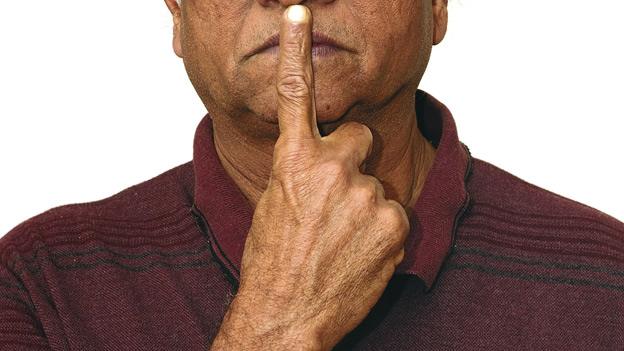
- Published7 May 2014
